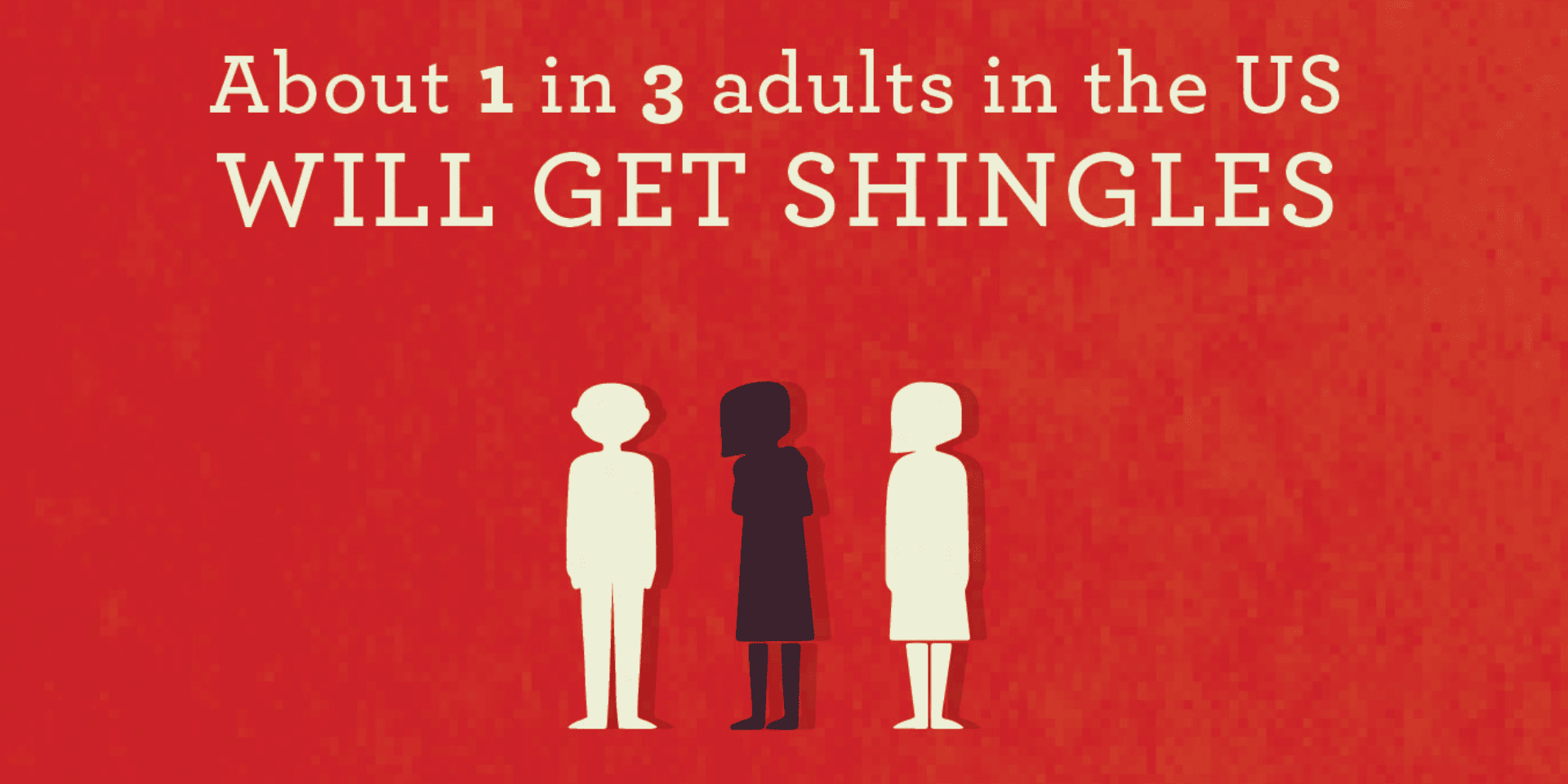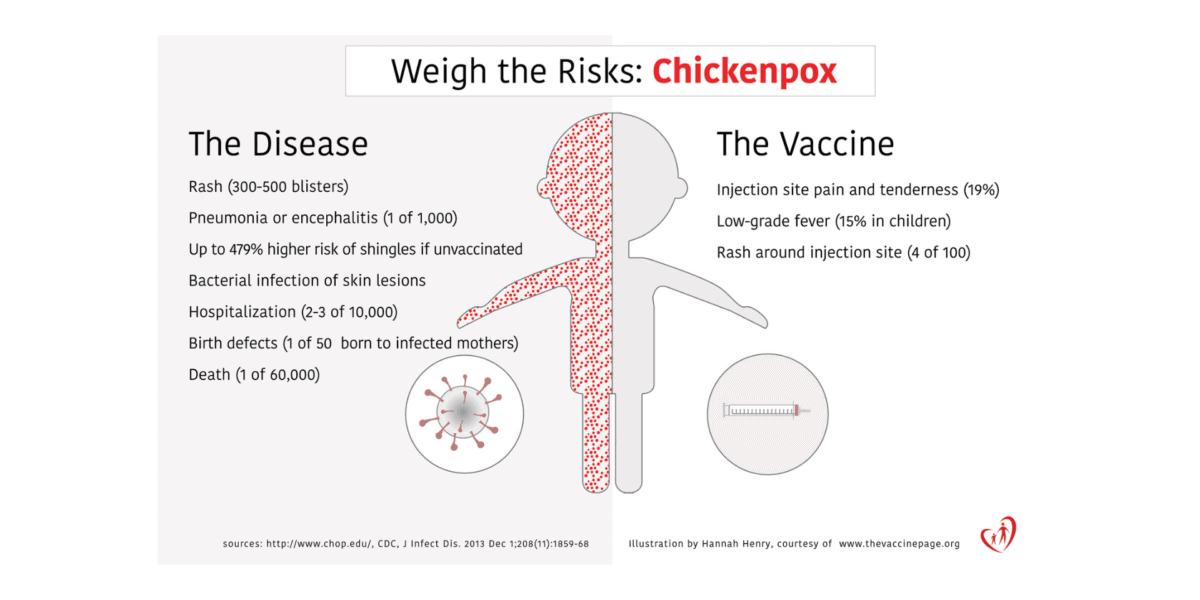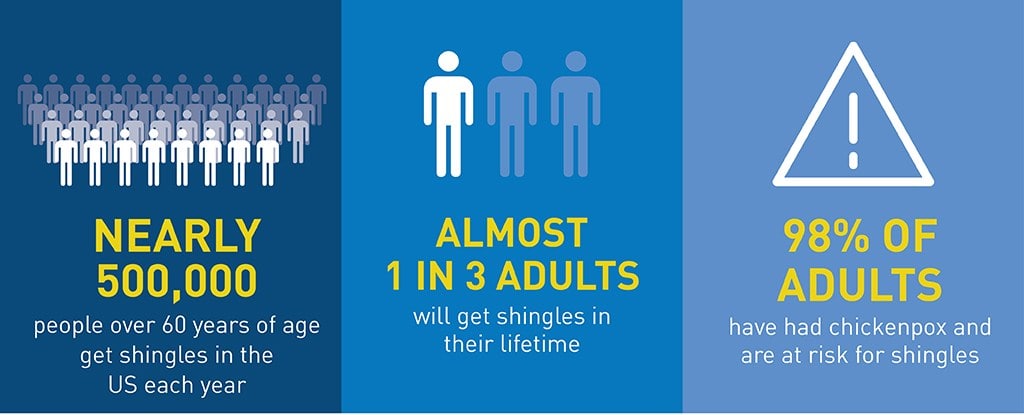
A new vaccine to prevent shingles (Shingrix®) was licensed for adults age 50 years and older by the US Food and Drug Administration (FDA), and in October 2017, it was recommended for healthy adults age 50 years and older as well as adults who previously received the current shingles vaccine (Zostavax®) by the Advisory Committee on Immunization Practices (ACIP).
To help increase awareness of the updated shingles (herpes zoster) vaccine recommendations, NFID hosted a webinar in December 2017 and addressed the following frequently asked questions about the new shingles vaccine recommendations:
When will Shingrix® become available in the US?
Shingrix® will be available in the US during the first half of 2018.
Can healthcare professionals (HCPs) still use Zostavax® or only Shingrix®?
Zostavax® is still available and may be administered based on patient preference or a known allergy to Shingrix®. However, Shingrix® is preferred due to superior efficacy and longer duration of protection.
If a patient has just been given Zostavax® how long should they wait to receive Shingrix®?
Shingrix® has been shown to be safe and immunogenic in participants who had received Zostavax® ≥5 years previously. There is no recommended interval, however 8 weeks has been set as a minimum. Age and other factors should be considered in the decision of when to revaccinate. In general, the benefit of early revaccination will be greatest for adults over 70 years of age and those who received Zostavax® more than 1-2 years prior.
Is shingles vaccine recommended for those who have already had shingles?
Shingrix® is recommended for individuals with and without a prior episode of shingles. Recurrent episodes of shingles can occur, and the vaccine reduces this risk.
What if someone did or did not receive varicella (chickenpox) vaccine or never had chickenpox? Do they still need shingles vaccine since the virus was never introduced into their system?
Individuals who are 50 years of age or older should receive Shingrix® even if they previously received varicella vaccine. Screening for a history of chickenpox or measurement of varicella antibody titer is not recommended. However, if a person is known to have a negative varicella antibody titer, CDC guidelines for varicella vaccination should be followed.
Should adults age 50 years and older with vaccine-induced varicella immunity receive Shingrix®?
Adults age 50 years and older should receive Shingrix® even if they previously received varicella vaccine. Seroprevalence studies indicate that nearly all individuals in this age group have serologic evidence of varicella infection and are at risk for developing herpes zoster.
For prior recipients of Zostavax®, are two doses of Shingrix® still indicated, or would a single “booster” dose of Shingrix® produce sufficient immunity?
Two doses of Shingrix® are recommended. The vaccine is qualitatively different from Zostavax® and two doses are recommended regardless of prior Zostavax® receipt or prior episode of shingles.
What is the efficacy of one dose of Shingrix® and the length of duration?
The efficacy of a single dose has not been studied and it is unknown how much protection is generated after only one dose.
What vaccination implementation strategies should be used to ensure patients receive the second dose?
To ensure that patients receive all recommended doses in a series, multiple strategies may be useful including: patient education, call back/electronic reminders, printed reminder cards, and/or electronic medical record prompts. A second dose of Shingrix® should be administered 2-6 months following the first dose. However, there is no need to restart the series if the second dose is given more than 6 months after the initial dose.
Additional Resources:
- Frequently Asked Questions About Shingles (Herpes Zoster)
- The Real Pain of Shingles
- Older Adults Need Vaccines, Too!
- Shingles Vaccines: What You Need to Know (NFID CME/CNE webinar presented by Edward A. Belongia, MD and Michael D. Hogue, PharmD)
To join the conversation, follow NFID on Twitter using the hashtag #PreventShingles, like us on Facebook, follow us on Instagram, join the NFID Linkedin Group, and subscribe to NFID Updates.
Related Posts

Spread Information, Not Diseases
Vaccines are among the most significant achievements in public health and can help protect against 14 deadly diseases. Share these infographics to help spread information, not disease!

